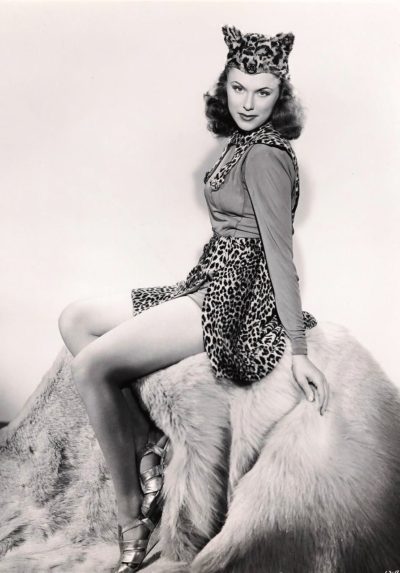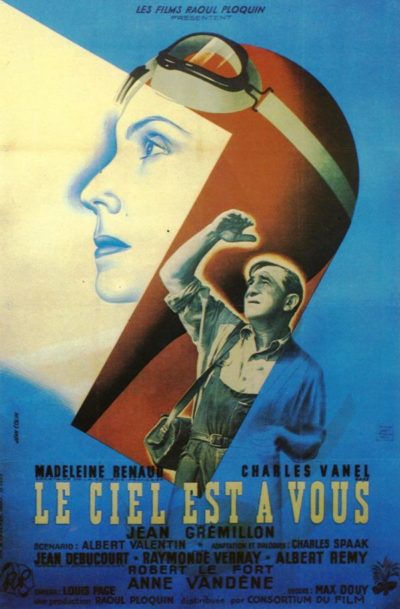★★½
“A leopard which changes its spots.”
Am I the only person irrationally annoyed by the title of this 12-episode serial? It takes place in South America, where the only tigers are in captivity. And look at the picture of the heroine. LOOK AT IT. In what universe is that a tiger? I mean, the ears are a nice touch, but it’s very obviously not tiger stripes. Though it has been pointed that in its location, the jaguar is known as el tigre. Which might make sense if there was any other jot of Hispanic culture to be found here. [GWG readers: “Get on with it!”] Oh, alright… if you insist.
 As mentioned, we’re in South America, where two competing oil companies are seeking to establish their territory. The Inter Ocean Oil Company are the current occupants, and have been working in association with the indigenous population, under their white queen (Stirling), known as the Tiger Woman. But if they don’t strike oil soon, their franchise will expire. A predatory, far less friendly (but unnamed) company, is standing by, to make sure that doesn’t happen, allowing them to take over. But Inter Ocean has sent top troubleshooter, Allen Saunders (Rock Lane), to work with the Tiger Queen and block their enemy’s attempts. Those get more desperate as the deadline approaches and Inter Ocean appear to be succeeding. Complicating matters is the Tiger Queen’s original identity as missing heiress, Rita Arnold, something her enemies want to use to their advantage.
As mentioned, we’re in South America, where two competing oil companies are seeking to establish their territory. The Inter Ocean Oil Company are the current occupants, and have been working in association with the indigenous population, under their white queen (Stirling), known as the Tiger Woman. But if they don’t strike oil soon, their franchise will expire. A predatory, far less friendly (but unnamed) company, is standing by, to make sure that doesn’t happen, allowing them to take over. But Inter Ocean has sent top troubleshooter, Allen Saunders (Rock Lane), to work with the Tiger Queen and block their enemy’s attempts. Those get more desperate as the deadline approaches and Inter Ocean appear to be succeeding. Complicating matters is the Tiger Queen’s original identity as missing heiress, Rita Arnold, something her enemies want to use to their advantage.
The heroine is something of a step forward from Jungle Girl, with Rita/Ms. Tiger at least making an occasional effort to get involved in the fisticuffs (copious, to the point half the oil company’s profits must have gone on replacement furniture). However, it’s rare for this to last more than a few seconds, and it seems she’s as fragile as cut crystal. Run into a wall? Knocked out. Trip on the carpet? Knocked out. Looked at askance by a bad guy? Probably knocked out. I swear, there are times where it feels like she spends half her screen time unconscious.However, as in Jungle Girl, there are odd moments which rise above, though I’m not sure the aeroplane spin would be a move familiar to white goddesses from the sky.
She does have a regal presence (perhaps due to Sterling’s background as a model, before she turned to acting), even if her throne looks a bit like it was built out of banana boxes. Ms. Tiger is also reasonably brave, always willing to put herself in danger when necessary for her tribe – or, probably more relevantly, necessary for cliff-hanger purposes. I was less impressed with the plotting, especially the shenanigans of the villains, which seem almost random, rather than well-conceived to their particular aims. For instance, they’re supposed to kill Rita, then get someone else to impersonate her and claim the inheritance. If that’s the best plan you can come up with… you need to bring in some kind of outside consultant. Again, it feels as if everything they do is for cliff-hanger purposes, not as a means to an end. It gets kinda repetitive after a while.
Still, this was a big hit, and led to Republic fast-tracking another vehicle for Sterling. Only a few months after this was released, production started on Zorro’s Black Whip, in which she would get to be more of a proper lead.
Dir: Spencer Bennet and Wallace Grissell
Star: Linda Stirling, Allan Lane, Duncan Renaldo, George J. Lewis
Subsequently re-released in 1951 as Perils of the Darkest Jungle, and in a cut-down TV version in 1966 as Jungle Gold.






 This 12-part serial from Republic was a spin-off from the success of Zorro – though despite the title, the Z-word is never mentioned. It moves the legend from Spanish California to Idaho in the 1880’s, just before a vote to decide whether it would become a state. Villainous Dan Hammond (McDonald) begins a violent campaign to prevent this, and is opposed by local newspaper owner Randolph Meredith, who has a secret identity as The Black Whip, a masked vigilante. When he is shot dead, his sister Barbara (Stirling) takes up the cape and whip, along with the help of undercover federal agent, Vic Gordon (Lewis). Together, they foil Hammond’s increasingly-desperate plots as voting day nears, and escape from 11 precarious positions. Well, it
This 12-part serial from Republic was a spin-off from the success of Zorro – though despite the title, the Z-word is never mentioned. It moves the legend from Spanish California to Idaho in the 1880’s, just before a vote to decide whether it would become a state. Villainous Dan Hammond (McDonald) begins a violent campaign to prevent this, and is opposed by local newspaper owner Randolph Meredith, who has a secret identity as The Black Whip, a masked vigilante. When he is shot dead, his sister Barbara (Stirling) takes up the cape and whip, along with the help of undercover federal agent, Vic Gordon (Lewis). Together, they foil Hammond’s increasingly-desperate plots as voting day nears, and escape from 11 precarious positions. Well, it